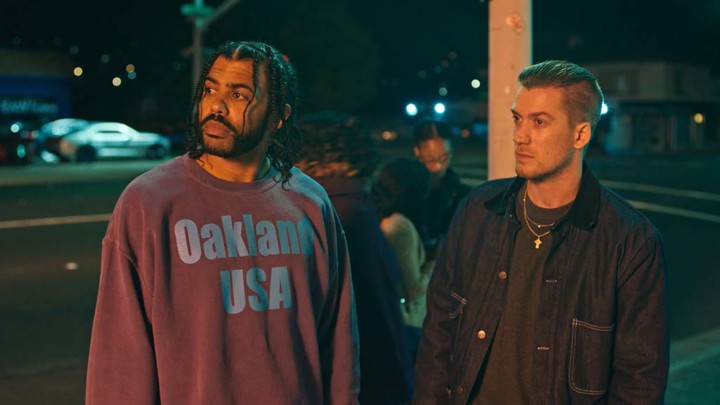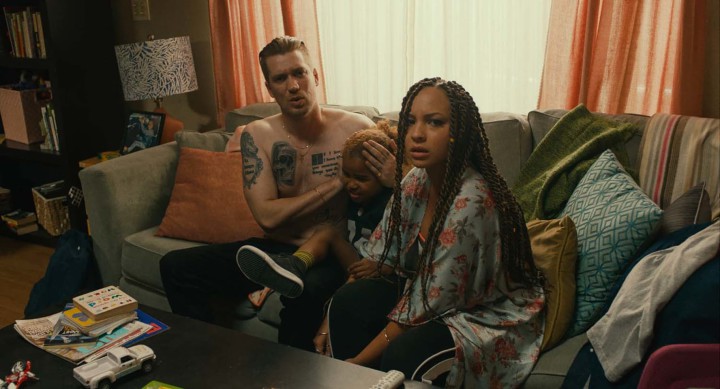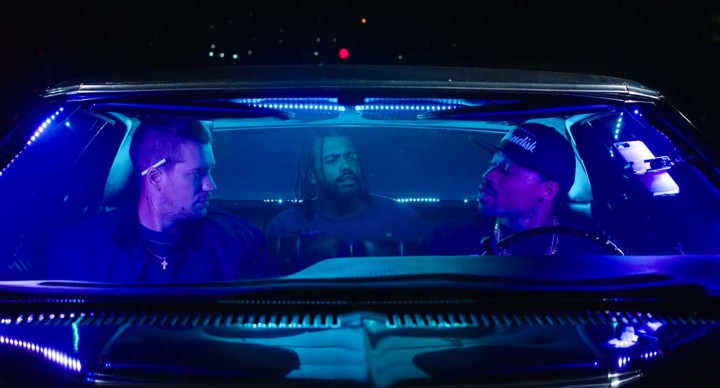Racism, gentrification and cultural appropriation are very real and timely issues that demand to be acknowledged and discussed within the context of the contemporary cultural zeitgeist, and the sense of urgency and immediacy surrounding these issues seems almost without precedent. That Hollywood — or, in the case of Blindspotting, Oakland — is taking the forefront in such discussions may not be entirely unexpected, but the nature of the films leading this cinematic movement could be called exactly that. I would never have guessed that a low-budget horror film like Get Out or a surrealist satire like Sorry to Bother You would become the tip of the proverbial spear when it comes to furthering public discourse on problems that span centuries, but here we are. You can add to that list Blindspotting, a film that lacks some of the polish that made those films such critical darlings but shares their revolutionary DNA.
Written by stars Daveed Diggs and Rafael Casal, Blindspotting takes a tonally dissonant approach to the difficulties confronted by two jocular, working-class Oakland natives separated by race but united by a shared cultural experience. That experience is quickly being subsumed, however, by the Whole Foods-frequenting hipsters inundating their neighborhood and rendering it unrecognizable in the process. From the corner bodega that now sells putrid-looking green health drinks alongside the loosies and lotto tickets to the Silicon Valley bros getting neck tattoos to boost their street cred, the old Oakland seems to be a thing of the past. That is, of course, until Diggs’ Collin witnesses a police officer shooting an unarmed black man in the back.
Diggs’ and Casal’s script plays something like an awkward amalgam of Boyz n the Hood and the Charlie Sheen/Emilio Estevez “comedy” Men at Work, but that description really doesn’t do Blindspotting justice. Director Carlos López Estrada sets up not only the film’s themes of gentrification and racial tension but also its odd blend of comedy and melodrama with a split-screen sequence under the titles that establishes a quasi-Hegelian dialectic. The thesis adopted by Collin and Miles (Casal) is to cope with their changing world through humor, only to find themselves thwarted by its indirect antitheses, violence and disenfranchisement. The resultant synthesis is an inexorably growing rage, leaving them to lash out at their loved ones, each other and the world at large.
If Blindspotting occasionally fails to strike the right balance between its comedic impulses and the crushing weight of its socio-political statements, it’s hard to fault the filmmakers; these are sentiments that generations of Americans have also failed to reconcile, after all. The film is admirable even in its unevenness, thanks in no small part to the laudable efforts of Diggs and Casal on both page and screen.
If I could make one simple request of the producorial powers that be in Tinsel Town, it would be the humble plea that films such as this don’t glut the market or get lost in the din and become white noise to placate white guilt, a discarded trend destined to be tossed aside like an abandoned juice cleanse or last season’s shoes. Movies like this need to be seen, voices like those of Diggs and Casal heard — not just in 2018, but from here on out. Rated R for language throughout, some brutal violence, sexual references and drug use.
Now Playing at Carolina Cinemark.









Before you comment
The comments section is here to provide a platform for civil dialogue on the issues we face together as a local community. Xpress is committed to offering this platform for all voices, but when the tone of the discussion gets nasty or strays off topic, we believe many people choose not to participate. Xpress editors are determined to moderate comments to ensure a constructive interchange is maintained. All comments judged not to be in keeping with the spirit of civil discourse will be removed and repeat violators will be banned. See here for our terms of service. Thank you for being part of this effort to promote respectful discussion.